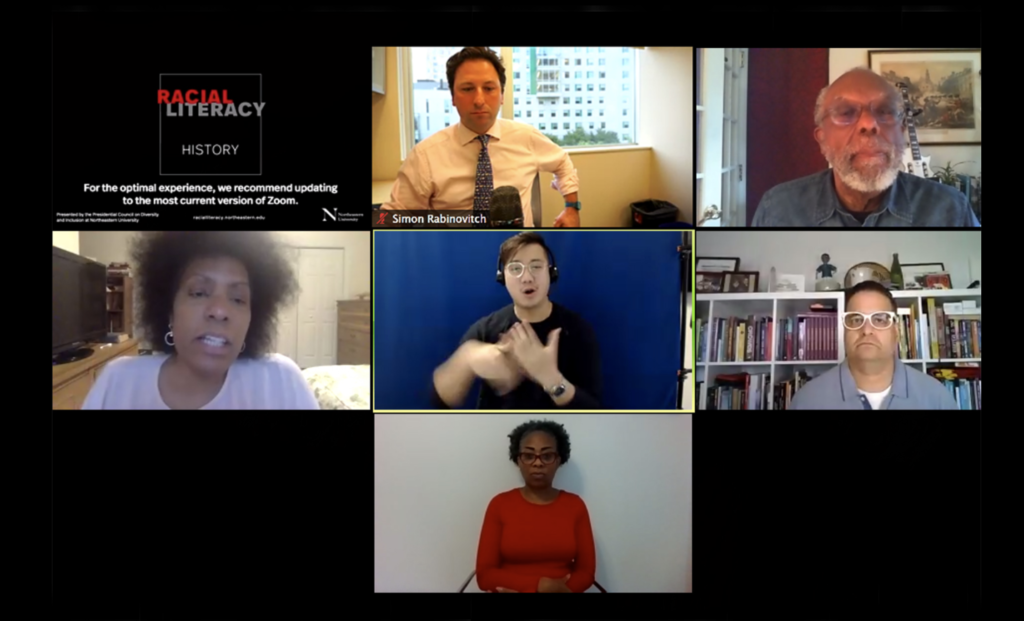Throughout the fall, NU offered a series of online panels in conjunction to their one-credit class. After introducing the meaning of Racial Literacy it explored various topics; Boston’s complex history of racism and social justice, the necessity of diverse cultural narratives, and the justice system’s troubled history with racism and vote suppression. Following each panel, students who took part in the one credit course take part in group discussions and circulated weekly written reflections on the material.
In some cases, the Racial Literacy series further affected the future goals of its students participants. “The Pop-Up solidified that I wanted my work to be on human rights and immigration,” said Claudia Cheneski in a later interview. Cheneski is a third year Criminal Justice and Human Services student. She began her career at NU undecided, but after her co-op with New York’s State Attorney’s Office she gained more insight into her vision for her future. Ultimately, visualizing paths to a better future through self reflection was one of the major goals of the Literacy series – and there was a great deal of time allotted for self reflection.
For Yael Sheinfield, a Political Science and Communications student coming to NU from the suburbs of Chicago, the PopUp helped her better understand the legacies of race and racism in Boston: “I think there’s a certain factor about cities like Boston that makes racism hard to see since you’re grouped up into different neighborhoods” The PopUp helped to enlarge her understanding of race and politics, particularly through communication. “Reelected officials need to engage in these issues and it’s the communications team which focuses on that.” She’d participated in one-credit courses at NU before, but this year’s Racial Literacy Pop Up and Course Series was different. Sheinfield’s choice to participate in the one-credit course wasn’t just because of its relevance, but because it was essential for her future goals and personally important to her.

This was a purposeful decision by the designers of the course. Tracy Robinson-Wood, Professor of Applied Psychology opened the panels in September offering the audience a framework to process new information which she calls “the ABCs of racial literacy.” She discussed her hopes for the pop-ups after the course had concluded.
I’d like to see is for white people get together and talk about their racism more. There’s something to be said about communities that are safe, but why does the academy drive Women of Color to find places of safety and refuge?
Dr. Robinson-Wood wanted the participants to think deeply on what commitments people share with each other, mentioning, “We need to make commitments to heal the racism on the planet. It can be done—and it must be done with love.” She hopes that the university will continue to do work like the Racial Literacy Pop Up Series and spoke highly of the students that engaged in the program. In honor of the NU students doing this meaningful work, CSSH is happy to begin a series of student spotlights that focus on improving racial literacy and seeking justice across campus.



